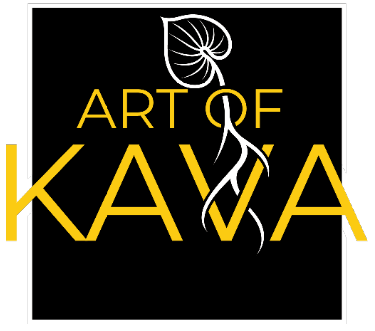Kava (Piper methysticum) is a plant-based supplement known for its calming effects on the mind and body. But how does it work on a neurological level? And what does it actually do to the nervous system when you’re feeling stressed?
In this article, we explain how kava interacts with your central nervous system, how it influences neurotransmitters like GABA and dopamine, and why it may help regulate the body’s stress response.
Count on natural assistance for your nervous system - try Damu. Buy now!
What Is the Nervous System’s Role in Stress?
The nervous system plays a central role in how the body reacts to stress. When you're under pressure, your sympathetic nervous system triggers the "fight or flight" response — increasing heart rate, muscle tension, and anxiety levels.
Once the threat passes, your parasympathetic nervous system helps bring things back to baseline. This calming process can be impaired in people with chronic stress, anxiety, or sleep disorders.
How Kava Affects the Nervous System
1. Enhances GABA Activity
Kava’s most well-documented action is its ability to enhance the effects of GABA (gamma-aminobutyric acid), the brain’s primary calming neurotransmitter.
-
GABA helps regulate overactive brain activity and reduces excitability
-
Kava does not produce GABA but increases its effectiveness at the receptor level
-
This leads to reduced mental tension and greater physiological relaxation
2. Modulates the Stress Response Pathway
Kava may reduce activity in the hypothalamic-pituitary-adrenal (HPA) axis, which controls the release of cortisol, the body's primary stress hormone.
By helping regulate cortisol levels, kava may support:
-
Lower physical tension
-
Decreased heart rate and muscle tightness
-
A more stable mood during high-pressure situations
Take a look at one of our most popular kavas, Feo. Click here.
3. Supports Dopamine Balance
Some kavalactones — the active compounds in kava — are believed to influence dopamine, a neurotransmitter involved in mood, motivation, and emotional regulation.
-
Kava’s dopamine effects are moderate and non-stimulating
-
May help improve emotional balance and reduce irritability
4. Calms the Central Nervous System
Kava appears to reduce excitability in the central nervous system, helping quiet overstimulation without sedation or drowsiness.
Common effects include:
-
Reduced physical tension
-
Improved focus in stressful settings
-
Easier sleep onset
Kava, Stress, and the Autonomic Nervous System
The autonomic nervous system manages involuntary functions like heart rate, digestion, and breathing. It has two primary branches:
-
Sympathetic: Activated by stress
-
Parasympathetic: Responsible for relaxation and recovery
Kava may help shift dominance from the sympathetic system to the parasympathetic system, promoting a state of calm.
This rebalancing may support:
-
Lower blood pressure
-
Reduced cortisol output
-
A more regulated stress response
Frequently Asked Questions (FAQ)
Does kava affect the autonomic nervous system?
Yes. Kava may help rebalance the autonomic nervous system by shifting dominance from the sympathetic branch (which controls the fight-or-flight response) to the parasympathetic branch, which supports relaxation and recovery.
How does kava interact with the nervous system?
Kava primarily works by enhancing the effects of GABA, a calming neurotransmitter in the brain. It also appears to reduce excitatory brain activity and influence pathways involved in the body’s stress response, such as the HPA axis.
How quickly does kava affect the nervous system?
Most users begin to feel the effects of kava within 15 to 45 minutes. Onset time depends on the form used (tea, capsule, extract) and individual sensitivity.
Can kava help reduce physical symptoms of stress like muscle tension or rapid heartbeat?
Kava may reduce muscle tension and support lower heart rate by calming the central nervous system. These effects can make it easier for the body to return to a relaxed state during or after stress.
Is kava’s effect on stress psychological, physical, or both?
Both. Kava influences psychological stress by modulating brain chemistry, and it also affects physical stress responses like muscle tightness and cortisol release, which are controlled by the nervous system.
Does kava increase or decrease neurotransmitter levels like GABA or dopamine?
Kava does not directly increase GABA or dopamine levels, but it enhances GABA receptor sensitivity and may modestly support dopamine activity, contributing to a balanced and calm mental state.
Can kava calm an overactive nervous system without causing sedation?
Yes. Kava is known to reduce nervous system excitability without impairing alertness or memory. Its effects are typically calming but not overly sedating for most people, depending on the strain and dose.
Final Thoughts
Kava interacts with key systems in the brain and body to help manage the stress response. It supports GABA activity, balances cortisol production, and promotes nervous system relaxation. These effects may benefit individuals dealing with anxiety, high stress, or sleep disturbances.
When used responsibly, kava offers a plant-based way to support the nervous system and encourage a calmer, more balanced state.
Shop our collection of kavas for your favorite. Browse it here.

